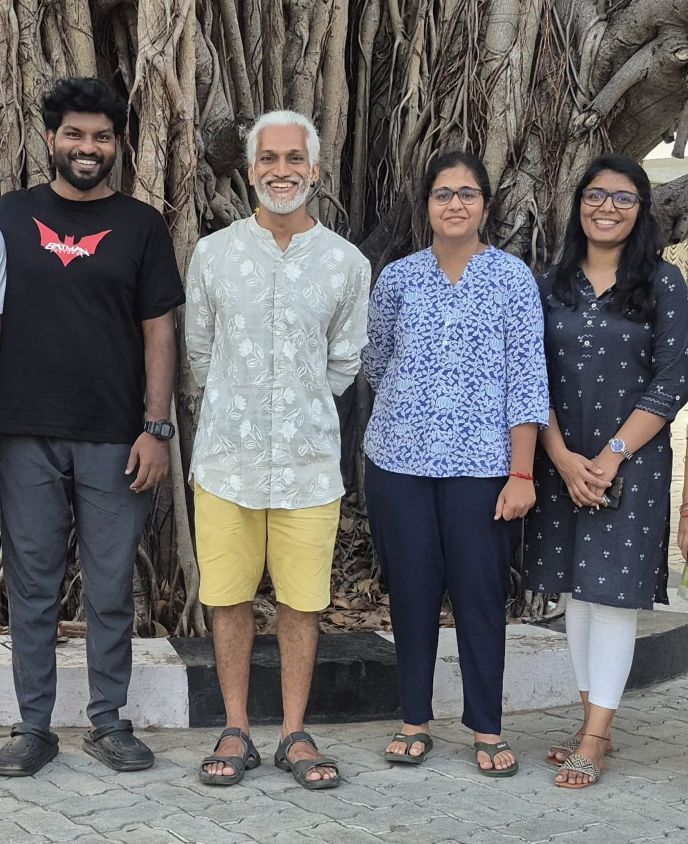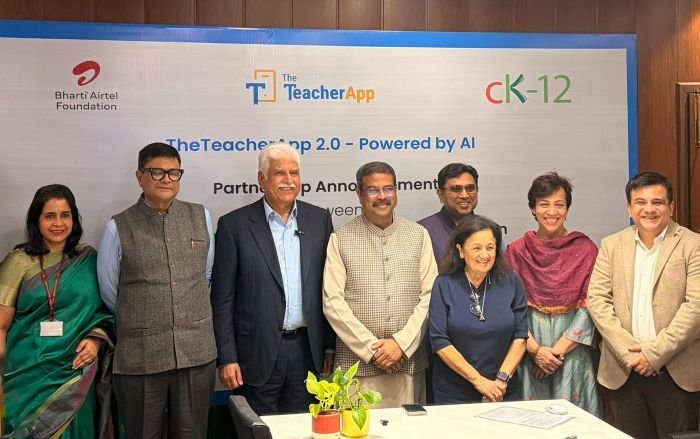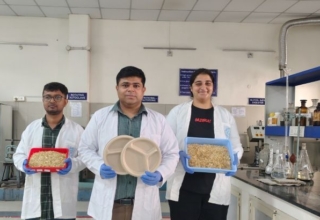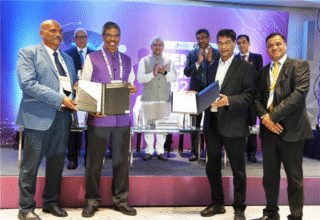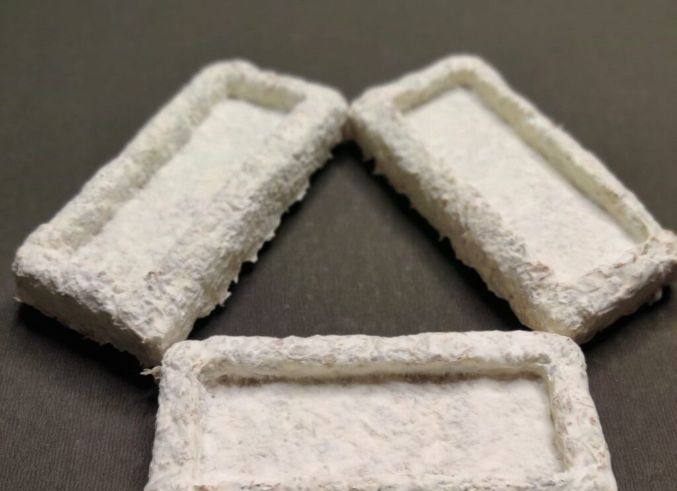
This research has the potential to make a transformative impact on both society and the environment by offering a practical solution to two major problems – plastic pollution & agricultural waste disposal
Indian Institute of Technology Madras (IIT Madras) Researchers have developed an agriculture waste-based packaging material, which can be a sustainable alternative to conventional plastic foams used in packaging.
The researchers demonstrated that mycelium-based biocomposites grown on agricultural and paper waste were found to provide quality in packaging while being biodegradable.
This research has the potential to make a transformative impact on both society and the environment by offering a practical solution to two major problems – plastic pollution and agricultural waste disposal.
By converting agricultural residues into high-strength, biodegradable packaging materials, this work directly supports reducing plastic waste produced in India, which currently exceeds 4 million tonnes annually, and leverages the 350 million tonnes of agricultural waste generated each year.
The Researchers have already established a start-up called NatureWrks Technologies co-founded by Lead Researcher Dr. Lakshminath Kundanati, an IIT Madras faculty, to develop and commercialise innovative products, pursuing technology transfer in collaboration with industry partners, and exploring licensing agreements to enable wider adoption of these solutions. Additionally, the researchers also aim to get government funding schemes to accelerate development and ensure that this research has a tangible, positive societal impact.
The findings were published during June 2025 in the reputed, peer-reviewed journal Bioresource Technology Reports (https://doi.org/10.1016/j.biteb.2025.102177). The Research Paper was co-authored by Research Scholars Ms. Sandra Rose Biby and Mr. Vivek Surendran and Dr. Lakshminath Kundanati from IIT Madras. This Research was funded by the NFIG (New Faculty Initiation Grant) of IIT Madras and the Ministry of Education, Government of India.
Elaborating on the significance of this Research, Dr. Lakshminath Kundanati, Assistant Professor, Department of Applied Mechanics and Biomedical Engineering, IIT Madras, said, “In India, over 350 million tons of agricultural waste are generated annually, much of which is burned or left to decay, causing air pollution and wasting valuable resources. Our Research aimed to address both challenges—plastic pollution and agricultural waste—by developing mycelium-based biocomposites as sustainable, biodegradable packaging materials.”
Dr. Lakshminath Kundanati added, “Currently, the research has demonstrated feasibility at the laboratory scale, with mechanical properties, water resistance, and biodegradability. The way forward includes optimizing substrate compositions for scalability, extending shelf life through natural coatings. By bringing this solution to market, the research aims to create affordable, eco-friendly packaging options that can replace harmful plastics, benefiting society through improved environmental health and economic opportunities. These composites can further be modified to cater to other engineering applications such as thermal and acoustic insulation materials. This work is also being carried out by newly joined doctoral student Ms. Smruti Bhat.”
By cultivating fungi such as Ganoderma lucidum and Pleurotus ostreatus, which are different types of mushrooms, on agricultural and paper wastes, the team explored an innovative waste-to-value strategy. This approach not only diverts agricultural residues from open burning but also creates fully compostable packaging solutions, aligning with circular economy principles.
The project investigated optimal combinations of fungal strains and substrates to produce composites with mechanical properties and tune in the features of conventional plastic foams. Ultimately, this research targets reducing the ecological footprint of packaging industries and promoting sustainable alternatives that can contribute to a cleaner, healthier planet.
Highlighting how this research was unique compared to previous work in this field, Ms. Sandra Rose Biby, Research Scholar, IIT Madras, said, “Unlike many prior works that focus on a single substrate or fungus, we provided comprehensive comparisons of mycelium biocomposites using two fungal strains, Ganoderma lucidum and Pleurotus ostreatus, across five lignocellulosic substrates—cardboard, sawdust, paper, cocopith, and hay. This study systematically explores how different substrates influence mycelial growth density, hyphal microstructure, compressive strength, water absorption, and biodegradability. The work identifies the ideal substrate–fungus combinations that outperform conventional foams like EPS and EPE, with Ganoderma on cardboard achieving compressive strengths an order of magnitude higher than EPS (Expanded polystyrene).”
Elaborating further, Mr. Vivek Surendran, Research Scholar, IIT Madras, said, “Our approach aligns with Circular Economy principles by converting low-value agricultural and paper wastes into high-value biodegradable packaging, while maintaining mechanical properties comparable or superior to petroleum-derived foams. These unique features position this research at the forefront of sustainable packaging innovation, offering practical, scalable solutions with both environmental and economic benefits.”
Replacing plastic foams like EPS and EPE with mycelium-based biocomposites can significantly reduce landfill burden, prevent microplastic formation, and cut greenhouse gas emissions associated with plastic production and waste incineration. The technology also promotes rural development by creating demand for agricultural by-products, potentially generating new income streams for farmers and rural communities. The use of local, low-cost substrates aligns well with India’s circular economy.


